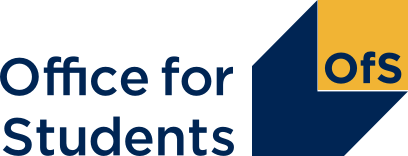Q&A with Radiography student, Demi. She tells us about her experience whilst on simulation placement in her first year at University of Liverpool.
3rd July 2019
Tell us about yourself
My name is Demi-Lee Armstrong, I’m 21 years old and from Derry Northern Ireland. I am currently in my first year of Radiotherapy at University of Liverpool.

Tell us about what happened on your simulated placement
Our simulated placement was designed to prepare us for clinical practice. During our placement we took part in role play with actors who played patients, and as radiographers we were able to practice our communication skills. I learnt how to turn normal radiographer terms into more conversational chats with patients to be on their level. This included communicating with patients before they start treatment, at the end of their treatment and talking them through side effects. I also got to learn more details about specific types of cancers’ and the side effects. We were really brought out of our comfort zone and placed into situations that radiographers can be on a daily basis, for example, patients getting upset or anxious about their treatment. We also got practical by setting the actors up for a CT scan, talking them through it step by step while learning what happens during a scan. We practised immobilisation methods such as putting tattoos (pen marks) on the patient. We used VERT (Virtual Environment Reality Training) combined with our own equipment at the university to recreate an actual day of being treated on set from start to finish. It was a realistic representation and even included leaving the room and alco-gelling our hands like the radiographers do to complete the treatment. We carried out a session on making masks on each other, used to help immobilise patients during their treatment. This is exactly what the mould room does and helped me to understand the process. A lot of speakers came in to tell us about different aspects outside of the treatment itself and more about the patients’ holistic needs, dementia awareness etc. We also learned about our own hand hygiene, manual handling and looking after our own health during our career.
What were the most enjoyable things about the simulated placement?
I really enjoyed making the masks used for immobilising patients and having one made on myself, practicing using VERT, and building up my skills and learning about the different needs of patients.
What do you think was the most important learning you gained from the simulated placement?
The most important thing I learned was communication skills. Practising with actors in different situations has helped me to handle situations with patients when they’re upset, anxious or angry. Also, I learnt how to communicate technically with radiographers as a professional and using language to help patients feel more at ease. Having a mask made on me and pretending to be a patient means I got to feel what it is like to be in a patient’s shoes and how vulnerable they must feel in those situations. I feel like I can now draw on that experience and help patients through it. I also learned a lot of technical skills from VERT which really helped in starting my clinical placement, as I found myself picking things up really quickly on set.
What did you find most challenging in the simulated placement?
The most challenging thing was practising chats with the actors as it was very daunting at the start. It really brought us all out of our comfort zone as we weren’t sure what to say and if it would be too much or too little.
How do you think the simulated placement impacted on your experience and performance on your clinical placement?
The simulated placement truly prepared me for going out into clinical practice as I picked up things very quickly. In my assessments, radiographers and clinical tutors have said they have found our year to be so much more advanced at such an early stage. They have commented particularly on our communication skills and how impressed they are, sometimes they even forget that we are first year undergraduates. This gives me a lot more confidence. I don’t think I would be progressing as quickly as I am as a student radiographer if it hadn’t have been for the simulation placement and all the support we received during it.
Learn more about being a Radiography student at University of Liverpool








